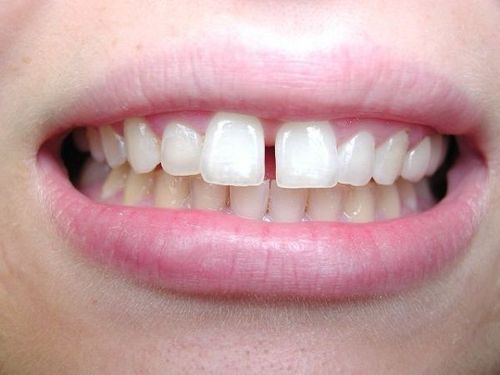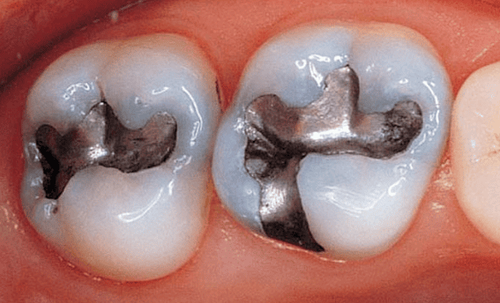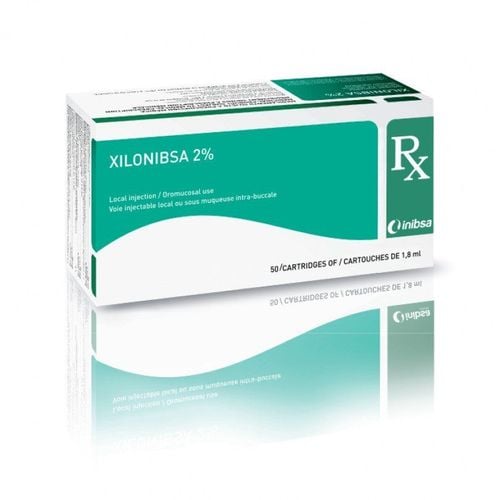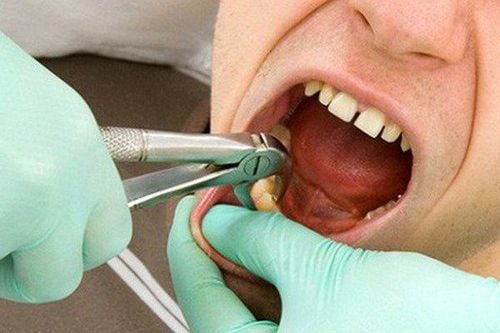This is an automatically translated article.
Posicaine 100mg is a drug commonly used in dental procedures today. So what is Posicaine 100? How does the drug work and when should it be taken?
1. What is Posicaine 100?
Posicaine 100 is a topical anesthetic widely used in dentistry.
The main ingredient of the drug contains:
Articaine hydrochloride 68mg. Epinephrine bitartrate 0.031mg. Epinephrine (Adrenaline) is a drug that stimulates the sympathetic nervous system. Adrenaline when entering the body will be inactivated by enzymes in the intestine, metabolized in the liver for the first time. The drug works more quickly when given by intramuscular or subcutaneous injection. Both endogenous and exogenous adrenaline are readily inactivated by nerve cells, hepatic and tissue proteolytic enzymes, and by diffusion. The drug is excreted mainly through the urine.
Effects of Epinephrine:
Epinephrine has a direct effect similar to the sympathetic nervous system, the drug has the ability to stimulate both alpha and beta receptors. This effect is changed by dose, the body's compensatory reflex. On the other hand, the drug increases myocardial contractility and frequency, increases systolic volume and myocardial oxygen consumption, and increases coronary flow and decreases peripheral resistance. Through these effects, the drug increases systolic blood pressure. Increases the adhesion of platelets to increase blood clotting. Stimulates the central nervous system but does not affect cerebral circulation, does not dilate the pupils. Decrease intestinal tone, reduce intestinal secretion. A drastic decrease in renal blood flow without changing the glomerular filtration rate. Drugs that decrease bladder tone but increase smooth muscle tone can sometimes cause dysuria. In pregnant women, the drug inhibits uterine contractions. In addition, the drug also reduces insulin secretion, accelerates glycolysis, increases glucagon secretion, so it increases blood sugar in the body, and increases the amount of potassium in the blood plasma.
2. Uses of Posicaine 100mg
Posicaine 100mg drug has the main effect of anesthesia, reducing pain for patients during dental procedures.
Posicaine 100 penetrates relatively quickly (from 1 to 3 minutes), each ampoule has a lasting effect of 45 to 75 minutes, very convenient in supporting dental procedures. According to FDA recommendations, the time for root canal anesthesia of the drug can be extended to 60 minutes if used locally in the upper jaw and up to 120 minutes longer when injected in the lower jaw area.
Indication to use Posicaine 100 in the following cases:
Used in simple and complex dental procedures requiring regional anesthesia or local anesthesia such as: root canal treatment, tooth extraction, tooth filling, Implant making , surgery... Contraindicated to use the drug with:
Patients with a history of hypersensitivity or allergy to any ingredient of the drug. Do not give the medicine to children under 4 years old. Due to the presence of Epinephrine, it is necessary to note the following contraindications:
Patients diagnosed with hyperthyroidism but have not been treated stably. Patients with severe cardiovascular disease, high blood pressure. Do not use the drug in patients with diabetes mellitus associated with obstructive factors because the drug has the potential to cause vasoconstriction. People who have been diagnosed with narrow-angle glaucoma or who are at risk for closed-angle glaucoma. The drug can cause ventricular fibrillation in people who are anesthetized by Cyclopropan or halogenated anesthetics, so the drug should not be used in these subjects.
3. Dosage and how to use Posicaine 100mg
The drug is produced in the form of ampoules for injection, packed in boxes, each box has 50 ampoules, each tube has 1.7ml of medicine. In dentistry, the drug is administered by local injection.
Calculating the dose of Posicaine 100mg based on the content of Articaine in the drug, it is recommended to use a dose of 7mg/kg of body weight, the dose for the patient depends on the severity and response of the patient's body.
4. Side effects and notes when using Posicaine 100
Because the main ingredient in the drug is Epinephrine, this is a sympathomimetic ingredient, so when taking the drug, you may experience unwanted effects as follows:
Common side effects:
Headache, dizziness, feeling tired, increased salivation, or sweating that is not related to physical activity. Increased blood pressure, possible palpitations, tachycardia. Sometimes emotional disturbances lead to anxiety, tremors. Uncommon side effects:
The drug causes ventricular arrhythmias, excitability, insomnia, feelings of fear, or restlessness. Gastrointestinal disturbances, vomiting, nausea, decreased appetite. Ventricular arrhythmias may also occur. Difficulty breathing, urinary retention, difficulty urinating. Rare side effects: Posicaine 100mg can also cause cerebral hemorrhage, pulmonary edema due to hypertension, angina pectoris, arrhythmia, dizziness, dizziness, even fainting, cardiac arrest. If during the injection process, the drug leaks out of the blood vessels, the patient is at risk of necrosis. Posicaine 100 acts on the nervous system leading to mental disorders, confusion. In addition, the drug also disturbs metabolism, especially glucose metabolism in the body. To limit the risk of unwanted effects of the drug, when using Posicaine 100, it is necessary to note:
Use the drug according to the instructions and instructions of the doctor. Do not arbitrarily change the dosage increase or decrease without the consent of a specialist or a person with medical expertise. The drug is produced in the form of injections, absolutely not for oral use. Do not use the medicine after the expiry date. Do not use the drug on women who are breastfeeding. For women who are pregnant, so far there have been no specific studies on the effects of the drug on the fetus and fetal development. If medication is required, consult a medical professional before use. The drug can cause disorientation, dizziness, so it should be used with caution for people who have to drive or work related to operating machinery. Pay special attention to the side effects of drugs and drug interactions to avoid affecting the patient's health. To medicines out of reach of children. In case of drug overdose, depending on the dose used, the rate of absorption and the level of response, each patient will have different signs. The patient may have excitability or weakening of the cortical or spinal cord centers. Some symptoms appear slowly, such as nervousness, dizziness, vomiting, convulsions, hypotension, suffocation, severe leading to cardiac arrest, cardiovascular collapse. Medical staff must always be ready in all positions to prepare for emergency and actively resuscitate patients when risks occur. Store the medicine in accordance with the manufacturer's regulations and instructions, do not use the medicine after the expiry date. Dentistry is currently a matter of great interest to many people, not only in terms of health but also related to cosmetic issues. It is essential to understand the medications used to assist in dental procedures. Contact your doctor if you are in need of dental advice.













